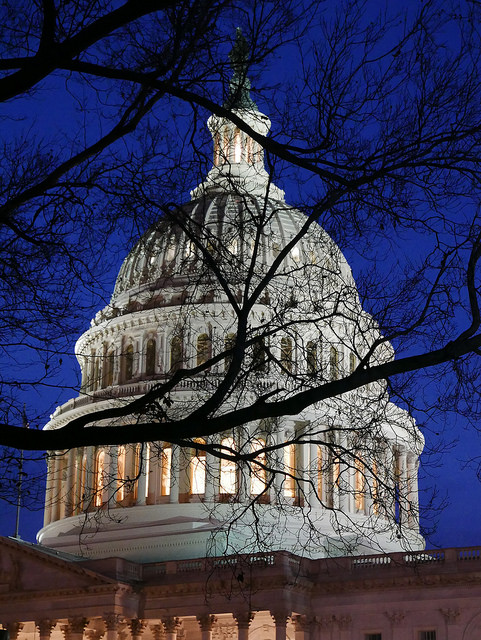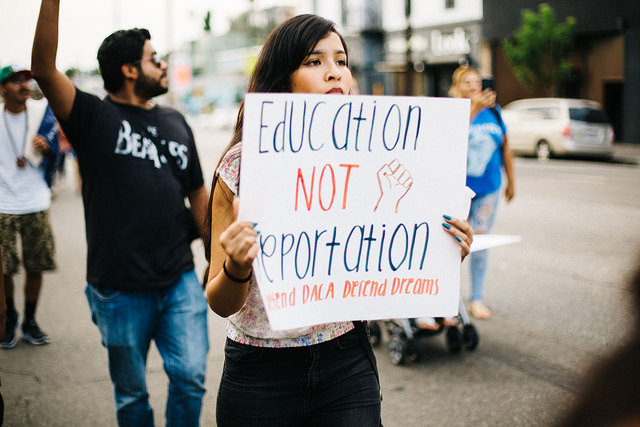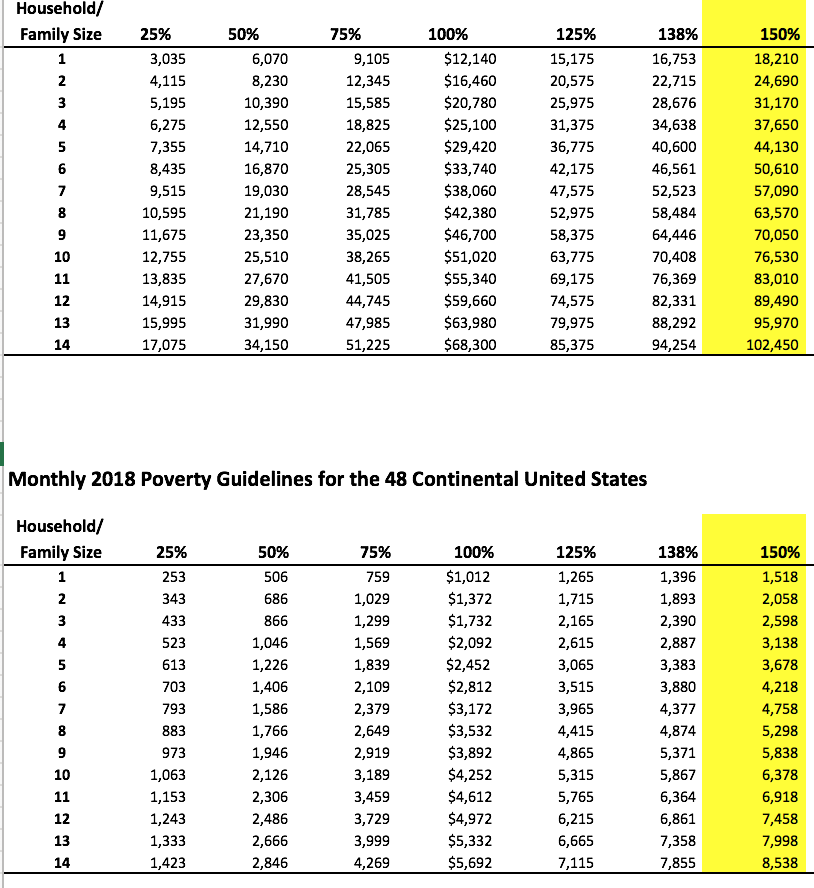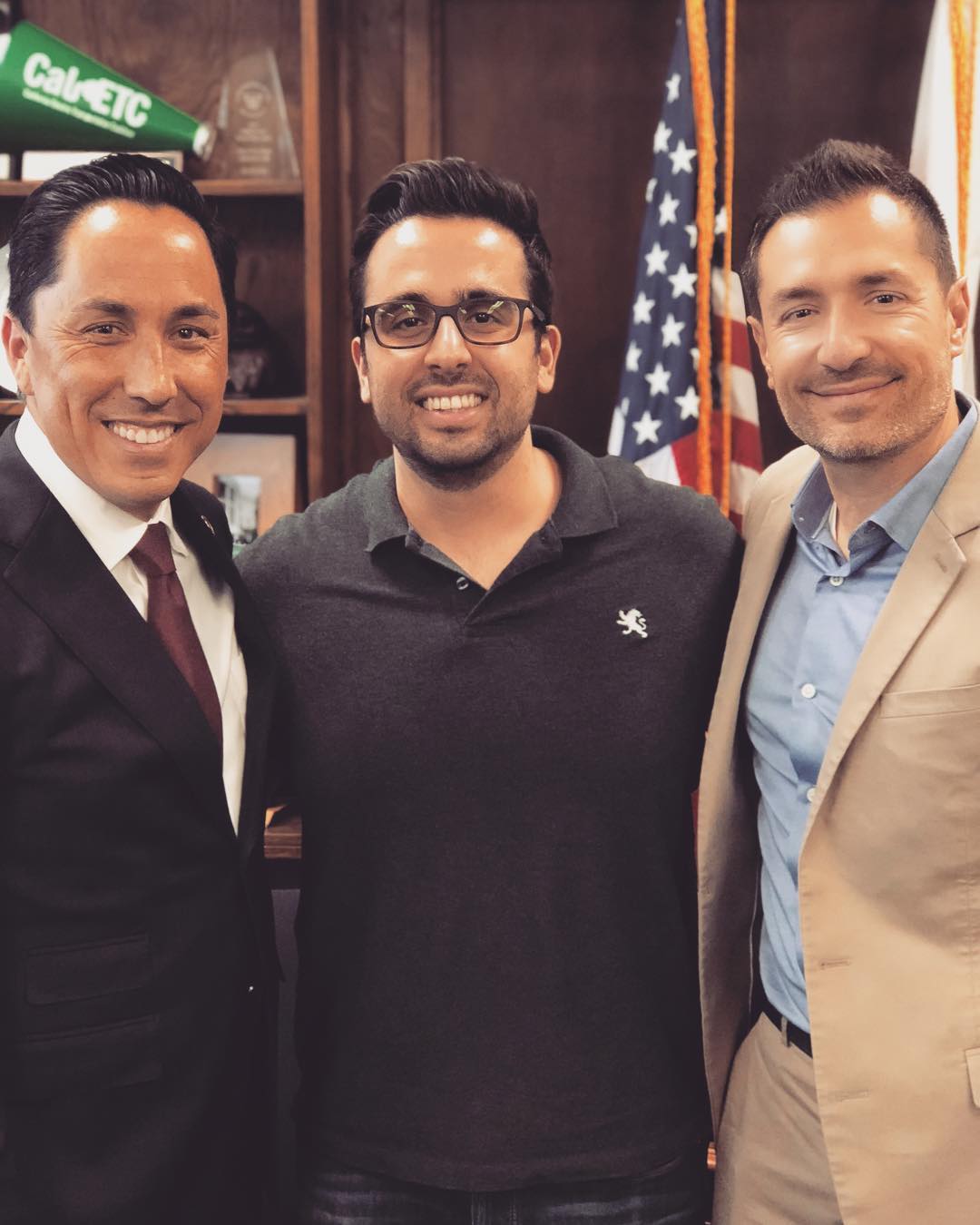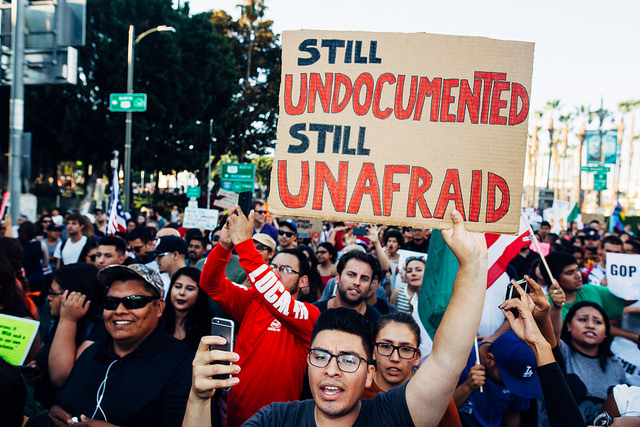IMPORTANT UPDATE: On February 14, 2018 USCIS announced that due to federal court orders issued on January 9, 2018 and February 13, 2018, USCIS will resume accepting requests to renew a grant of deferred action under the DACA program. Please read our post below to determine whether you qualify for a renewal request.
Articles Posted in DACA/DAPA
Immigration Debate Kicks Off Tonight in the Senate
On Sunday night, a group of Republican Senators met to draft the Republican party’s version of the President’s immigration framework, in preparation for a floor debate that will take place Monday night on immigration. The Republican bill is one of many proposals that will be considered by the Senate as part of the ongoing immigration debate. The proposed bill, known as the Secure and Succeed Act of 2018, drafted by Republican Senators Chuck Grassley, John Cornyn, James Lankford, Thom Tillis, David Perdue, Tom Cotton, and Joni Ernst, mirrors the Trump administration’s immigration framework.
Over the next few weeks Senators will vigorously debate and amend proposals on immigration with the goal of coming up with a piece of legislation that can garner at least 60 votes in the Senate to advance to the House of Representatives. The process will involve a free-for-all debate on the Senate floor that will allow Senators to propose amendments, with the goal of coming up with a bipartisan solution to shield Dreamers from deportation.
The GOP currently has a 51-49 majority in the Senate, making it necessary for Republicans to obtain support from Democratic Senators to reach the 60-vote threshold. Republicans have a large enough majority in the House of Representatives that they do not need a single Democratic vote to pass desired legislation.
Path to Citizenship for Dreamers
The Republican proposal focuses on providing a 12-year path to citizenship for up to 1.8 million people including DACA eligible recipients. Undocumented immigrants currently enrolled in DACA would receive a 2-year credit allowing them to obtain citizenship within 10 years. The criteria to obtain citizenship would require an individual to have:
Limited Fee Exemptions for DACA Renewals
In this post, we will discuss the limited circumstances in which applicants may request a fee exemption for Form I-765 filed in connection with a renewal request for consideration of Deferred Action for Childhood Arrivals (DACA).
In most cases the filing fee to request a renewal of Deferred Action for Childhood Arrivals cannot be waived, but fee exemptions are available in the following limited circumstances:
- Applicants under 18 years of age who are homeless, in foster care, or otherwise lack parental or other familial support, with income that is less than 150% of the U.S. poverty level may seek a fee exemption
- Applicants who cannot care for themselves because of a serious chronic disability with an income that is less than 150% of the U.S. poverty level may claim a fee exemption
- Applicants, who at the time of their request, have accumulated $10,000 or more in debt in the past 12 months, as the result of unreimbursed medical expenses for themselves or family members, receiving an income that is less than 150% of the U.S. poverty level may claim an exemption of the filing fee
To determine whether your income is less than 150% of the U.S. poverty level please reference the chart below:
In order to be considered for a fee exemption, applicants must submit a letter and supporting documentation demonstrating that they fall into one of the above-mentioned categories. Applicants must first file a request for a fee exemption and receive an approved fee exemption, before filing a request for consideration of deferred action on Form I-821D. Applicants may not submit Forms I-821D, I-765, and I-765WS without a record that a fee exemption has been approved.
Fact Checking the President’s State of the Union
This week the President of the United States delivered his much-anticipated State of the Union to unite the Democratic and Republican parties on a range of contentious issues still unresolved in Congress. One of those hot-button issues has been immigration. As you may recall the President has given Congress until March 5, 2018 to pass legislation protecting Dreamers from deportation.
Ahead of the President’s speech the White House unveiled an immigration framework thought to gain support from Democrats in Congress, however the Democratic response in the room to the President’s remarks on immigration was somber.
While the President’s speech focused largely on improving the economy and helping small American businesses, the President also touched on immigration. President Trump opened his remarks on immigration by calling for immigration policies that will put American workers and their families first.
To highlight the importance of border security and implementing tougher immigration policies the President recounted the tragic story of Kayla Cuevas and Nisa Mickens, two close friends that were brutally murdered by adolescent gang members of MS-13, who the President said took advantage of the country’s loopholes to gain entrance into the country as unaccompanied minors. The parents of Kayla and Nisa Mickens stood tearfully to receive applause from members of Congress in the room. The President called on members of Congress to “close the deadly loopholes that have allowed MS-13 and other criminals” to enter into the country. The President touted that his administration has proposed new legislation to fix the country’s immigration laws and support ICE and Border Patrol Agents in their efforts to apprehend dangerous criminals.
White House Unveils Framework Supporting a Path to Citizenship for Dreamers
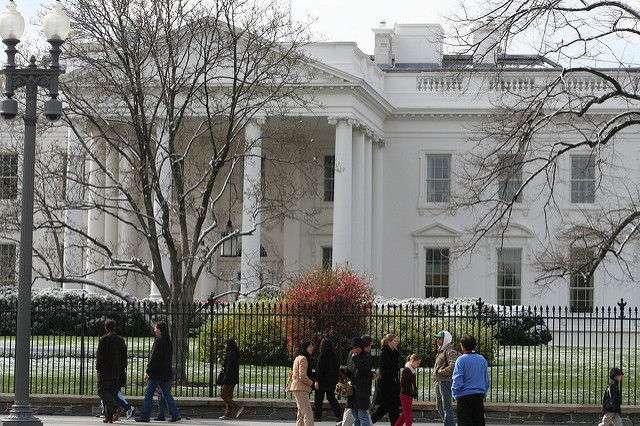 Yesterday January 25, 2018, the White House unveiled a framework on Immigration Reform and Border Security outlining the Trump administration’s proposals on immigration. As we previously reported, members of Congress have 16 days to hash out their disagreements, and come up with a piece of legislation that would protect more than 700,000 Dreamers from deportation. As part of that deal, the Trump administration has unveiled a framework containing their wish list for what the administration would like to see incorporated into legislation proposed by Congress.
Yesterday January 25, 2018, the White House unveiled a framework on Immigration Reform and Border Security outlining the Trump administration’s proposals on immigration. As we previously reported, members of Congress have 16 days to hash out their disagreements, and come up with a piece of legislation that would protect more than 700,000 Dreamers from deportation. As part of that deal, the Trump administration has unveiled a framework containing their wish list for what the administration would like to see incorporated into legislation proposed by Congress.
Dreamers
The White House framework openly supports a 10 to 12-year pathway to citizenship for DACA recipients and other DACA-eligible immigrants, legalizing a population of approximately 1.8 million young undocumented immigrants brought to the United States as children. In order to be eligible, DACA recipients would be required to fulfill requirements for work, education, and good moral character. Under the proposal, an individual’s legal status could be subject to revocation for criminal conduct, public safety and national security concerns, public charge violations, fraud, etc.
Border Security
In exchange for supporting a path to citizenship for Dreamers, the administration is asking Congress for $25 billion in funding to construct a border wall, secure United States ports of entry and exit, and beef up security in the northern border. The administration also seeks to expedite the deportation of criminals, gang members, violent offenders, aggravated felons, and those who have overstayed their visas.
The Immigration Fight is Just Beginning Amid Government Shutdown
As you may know, Republicans and Democrats have been engaged in heated discussions regarding the future of DACA during the last few days, with Democrats threatening to send the country into a government shutdown if Republicans refused to resolve key issues regarding immigration. The debates came on the heels of the President’s deadline, giving members of Congress until March 5th to come with a plan to protect Dreamers from deportation.
The government shutdown however has been averted, but with no clear plan regarding what the Republican-led Congress plans to do to meet the President’s March 5th deadline to protect Dreamers from deportation.
On Monday, members of Congress voted to pass a measure to fund the federal government through February 8th following a brief three-day government shutdown, in which Democrats refused to vote in favor of a funding bill without Republican support for a bill that would shield Dreamers from deportation. Ultimately Democrats gave in with a majority voting for the measure largely after receiving assurances from Senate Majority Leader Mitch McConnell that an immigration bill would be brought before Congress to protect more than 700,000 Dreamers from deportation.
Although the federal government is now back in business, the fight for Dreamers and comprehensive immigration reform has just begun. Democratic Leader Chuck Schumer explained that in exchange for Democratic support of the funding bill, the Republican-led Congress has 16 days to work with Democrats to write a bill that would receive at least 60 votes in the Senate to survive, and prevent Dreamers from being at risk for deportation. At the same time Congress will have to vote on a long-term funding plan, which will not be easy given that immigration has been a hot button issue and Democrats have already shown their resistance.
#FreeOrr UCSD Dreamer Detained by ICE
UPDATE: It is our great pleasure to announce that on January 12, 2018, our office successfully negotiated the release of Orr Yakobi from the Otay Mesa Detention Center. For more information regarding his release please click here.
It is with great heartache that we report to our readers that the ongoing battle to protect Dreamers from deportation has hit very close to home. Our office is currently in the process of vigorously defending an exemplary young man, a Dreamer, who was unjustly detained by Immigration and Customs Enforcement after taking a wrong turn at the U.S. Mexico Border.
Just days ago, 22-year old Orr Yakobi, was a young man full of hope and promise for the future. Yakobi would soon graduate with honors from the University of California San Diego with a degree in computer science, and was looking forward to what the future might hold after graduation. His dreams however came to an unpredictable halt, when in an unexpected turn of events, he was apprehended and detained by U.S. Customs and Border Protection all because of an honest mistake.
It all began on Sunday evening, when Yakobi and a close friend decided to spend the day shopping at the Las Americas outlet mall in San Ysidro, located near the U.S. Mexcio border in San Ysidro, California.
Judge Orders Trump Administration to Restore DACA Protections
In the middle of a hotly contested political battle among members of Congress, to pass a permanent legislative solution shielding Dreamers from deportation, late yesterday evening a federal judge in San Francisco handed down a ruling blocking the Trump administration from phasing out the Deferred Action for Childhood Arrivals (DACA) program enacted by former President Barack Obama.
As of Tuesday, January 9, 2018 U.S. District Judge William Alsup has issued a nationwide injunction ordering the Trump administration to restore DACA protections, while Congress legislates a more permanent solution to protect Dreamers from deportation. In his ruling, Judge Alsup said the Trump administration’s decision to rescind the DACA program was based on a flawed legal premise that was “not in accordance with the law.”
What does this decision mean for DACA enrollees?
The judge’s ruling mandates that the Trump administration maintain DACA protections open on a nationwide basis “on the same terms and conditions as were in effect before the recession (of the program) on September 5, 2017.”
This would include allowing Dreamers currently enrolled in DACA to renew their enrollments, with the following exceptions:
The momentum builds to pass the DREAM Act before the end of the year
As Congress races to avert a government shutdown before December 22, 2017, the momentum is building for members of Congress to include the DREAM Act on one of the government’s spending bills which must be passed before Congress goes into recess for the holidays.
The House and the Senate voted last week to grant the government a two-week extension so that Republicans and Democrats would have enough time to pass a short-term measure that would keep the government funded until January. That two-week extension however expires on December 22nd. This means that members of Congress must quickly negotiate pieces of legislation that must be passed along with a temporary spending bill, before Congress goes into recess for the holidays on December 22, 2017. This scenario has opened a unique window of opportunity for the DREAM Act to be included among pieces of legislation that must be passed before the government goes into recess. Republicans are currently under extreme pressure to keep the government open, and as such must concede and negotiate important issues before December 22nd. While Republicans are focused on passing their tax bill before the recess, the momentum is building for the DREAM Act to be negotiated during this narrow window of time.
As it stands, nearly every Democrat in Congress has thrown their support behind the DREAM Act, while many more Republicans are putting pressure on their party to deal with the issue immediately. Twenty-Four Republicans have already fired off a letter to the speaker of the House, Paul Ryan, asking for the DREAM Act to be passed before the end of the year. Lawmakers, political organizations, and tech leaders are also helping to increase the momentum to get the Act passed once and for all.
Relief for DACA Renewal Requests Affected by USPS Mail Service Issues
At the end of September, recipients of DACA were in a frenzy to file for a final 2-year renewal of their DACA status. The deadline to file for the final 2-year renewal was October 5th, 2017. Only individuals currently receiving DACA, whose status was to expire before March 5th, were eligible to apply for a final renewal of their status, provided their application was properly filed and received by the United States Citizenship and Immigration Services (USCIS) by October 5, 2017.
Following the October 5, 2017 deadline, USCIS rejected nearly 100 renewal applications, even though the cause for their delay was the fault of the United States Postal Service (USPS). At least 74 of the applications received after the deadline were mailed from the New York area and Chicago. USPS has taken responsibility for these delays, stating that the packages containing the DACA renewal requests were rejected as a result of mail problems in Chicago. Last week, USCIS flatly denied any responsibility for these late petitions, and said that nothing could be done, and that the decision to reject petitions received after the deadline was final.
However, USCIS recently had a change of heart. Yesterday, November 16, 2017, USCIS released a statement notifying affected individuals that USCIS will accept DACA renewal requests from individuals who re-submit their DACA renewal requests, and provide individualized proof that their DACA renewal request was originally mailed to USCIS in a timely manner, and that the cause of the petition’s receipt after the October 5th deadline was the result of USPS mail service error.
 Visa Lawyer Blog
Visa Lawyer Blog



